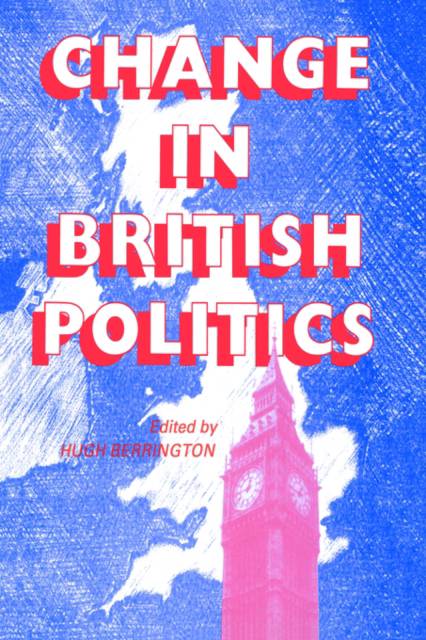
- Afhalen na 1 uur in een winkel met voorraad
- Gratis thuislevering in België vanaf € 30
- Ruim aanbod met 7 miljoen producten
- Afhalen na 1 uur in een winkel met voorraad
- Gratis thuislevering in België vanaf € 30
- Ruim aanbod met 7 miljoen producten
Zoeken
Omschrijving
First Published in 2004. The most striking change in British politics, during the seventies and early eighties, was the undermining and then the end of the post-war British consensus. That consensus had been long in decline before the final seals were set by Mrs Thatcher's victories in 1979 and 1983. The consensus, and the end itself, had profound effects on the British polity: they unsettled the distribution of power within the political parties (and hence the working of the institutions of the government); the direction of economic policy, the character of local government, and relations between government and interest groups were transformed. What accounts for the ending, in the mid-1970s of the 'policy consensus' which characterised British politics for most of the post-war period? The essays in this collection seek to explore the causes, and some of the consequences, of this breakdown.
Specificaties
Betrokkenen
- Auteur(s):
- Uitgeverij:
Inhoud
- Aantal bladzijden:
- 248
- Taal:
- Engels
Eigenschappen
- Productcode (EAN):
- 9780714632407
- Verschijningsdatum:
- 11/11/2004
- Uitvoering:
- Paperback
- Formaat:
- Trade paperback (VS)
- Afmetingen:
- 152 mm x 229 mm
- Gewicht:
- 367 g

Alleen bij Standaard Boekhandel
+ 268 punten op je klantenkaart van Standaard Boekhandel
Beoordelingen
We publiceren alleen reviews die voldoen aan de voorwaarden voor reviews. Bekijk onze voorwaarden voor reviews.








